Women. Aren’t they the most beautiful creation on earth? But women could also be the most complex creatures. It’s sad that a major part of the film industry around the world continues to stereotype women in cinema. But as cinephiles, we have always been inquisitive about the vastness of the cinematic universe and take pride in having explored a wide range of films outside of mainstream cinema. And this journey has had us stumbling upon numerous cinematic gems with powerful female characters at the helm. Filmmakers like Ingmar Bergman, Krzyzstof Kieslowski and Pedro Almodovar have explored the various facets of the female psyche. So, let’s celebrate women in cinema today. Here is a list of top movies that explore the complexities of women:
12. A Woman Under the Influence (1974)
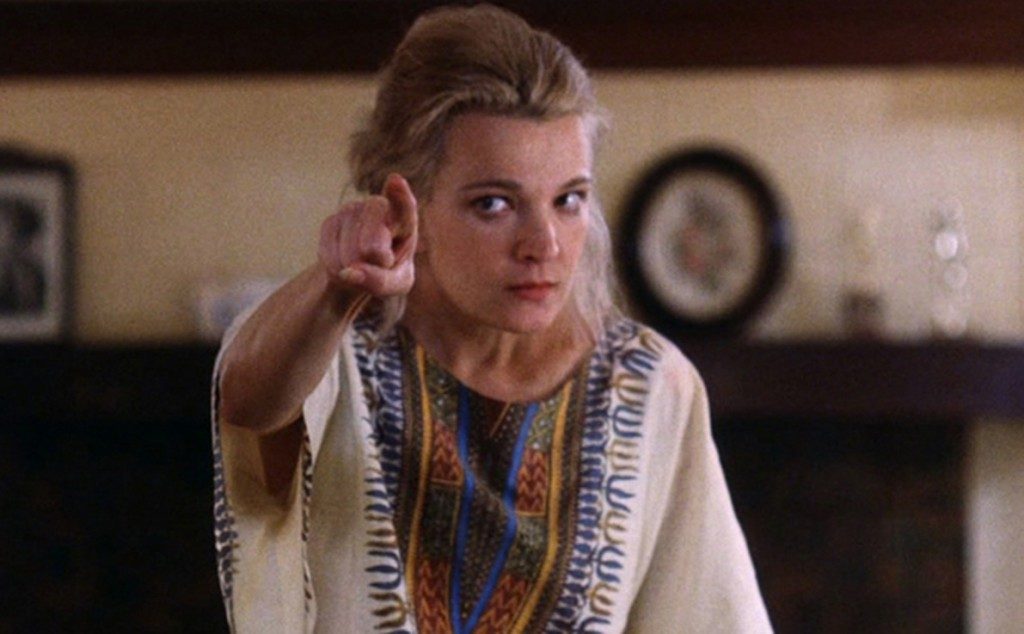
This John Cassavetes classic tells the story of a woman whose mental troubles begin to take a toll on her relationship with the family and her loving husband. With a script that is highly acting-centric, Cassavetes lets Gena Rowlands breathe her presence on to the screen as she delivers one of the most astounding female acting performances of all time. Rowlands’ performance is incredibly powerful, richly layered and manages to bring out the human being in Mabel Longhetti. We see her pain and her feelings of desperation and searing angst are palpable. Truly one of the most complex portraits of women in cinema.
11. All About My Mother (1999)
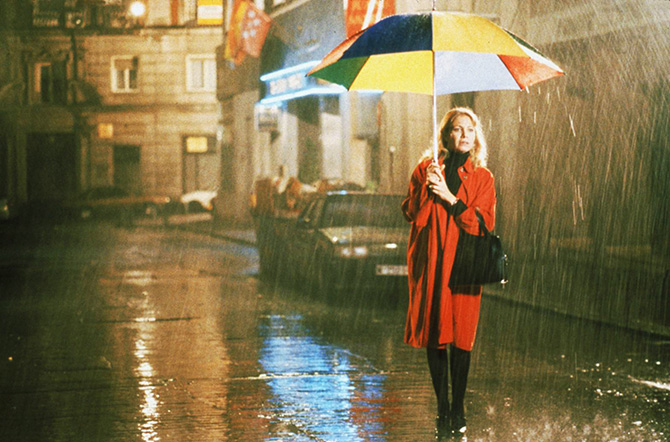
Spanish auteur Pedro Almodovar is an eternal lover of women. The passion and verve with which he writes women is simply astonishing. His films feature strong women; bold, inspiring and fiercely determinant. ‘All About My Mother’ tells the story of Manuela, a single mother grieving the death of her son, who sets out on a journey in search of her son’s father. On her journey she meets women from different phases of life with struggles, dreams and desires. Almodovar infuses the film with melodrama but the characters are extremely well written and fascinating. These aren’t stereotypical women characters that are usually portrayed in mainstream cinema. These are people abused, ignored by a certain society and Almodovar gives life to them. The film was one of the very first to deal with trans-sexuality.
10. Sophie’s Choice (1982)
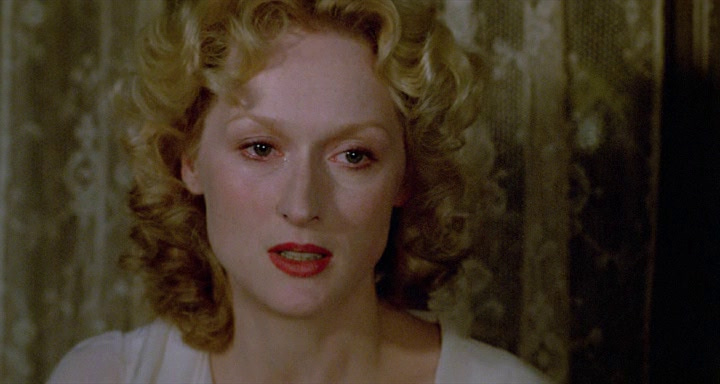
There is no word in the English dictionary that could perhaps describe the genius that Meryl Streep is. In Alan J. Pakula’s heartwrenching drama, Meryl Streep plays Sophie; a Polish woman living in America with her mentally unstable lover. What makes Sophie such a complex character is the kind of choices she made in her life. When the Nazi guard gives her a choice to pick between her two children, she chooses the boy and lets the girl be sent to death. Why did she choose her son? Was it because she thought he could never survive the concentration camp? Did she think her daughter would be as strong as her? Her complicated relationship with Nathan further develops her character. She loves him despite his mental troubles and how abusive he could be. Her choices are never really explained in the film which makes her so intriguing and infinitely complex. ‘Sophie’s Choice’ is a dark, tragic tale of womanhood; of a daughter, a mother and a lover.
9. 3 Women (1977)
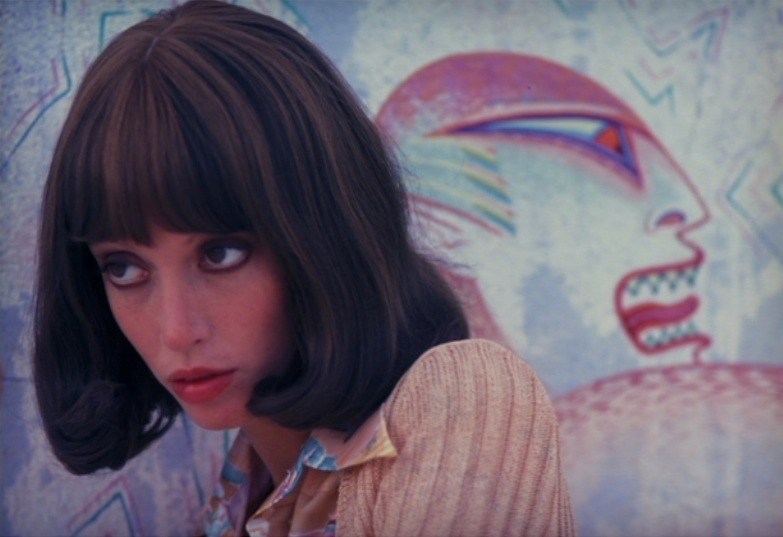
It was Robert Altman’s turn to explore the mystery behind the complex psychology of women. ‘3 Women’ portrays the eerie, bizarre, complex relationship between a young woman and her co-worker. Both women become inseparable as their personalities get melded and their mutual attraction towards another woman further complicates the existing scenario. Inspired by a dream Altman had, the film has an irresistible surreal quality that lets us slip into the world of female fantasies and dreams. Definitely one of the most challenging and intriguing pieces of cinema you’ll ever see.
8. Jeanne Dielman, 23 Quai du Commerce, 1080 Bruxelles (1975)
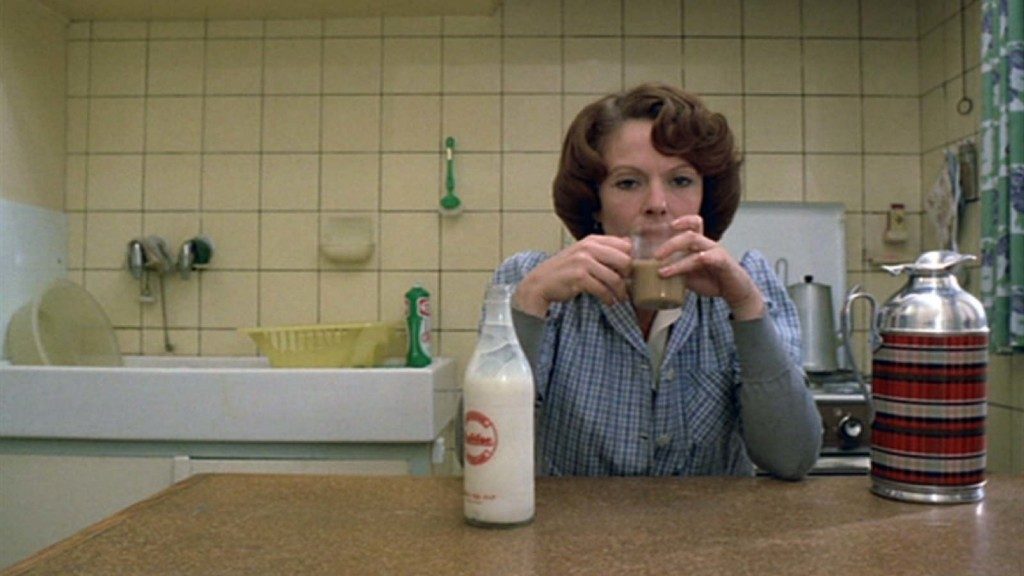
Arguably the greatest feminist film ever made, Chantal Akerman’s avant-garde masterpiece depicts the life of a single widowed mother who turns to prostitution to make a living. The film focuses on her daily routines; cooking, cleaning, shopping and mothering. Akerman asks us to observe the pain of mundanity, the pain of repression, the pain of being ignored and the pain of existence as a woman. Jeanne Dielman isn’t a character. She could well be our mother. She could be our sister or any woman that we know of. And it’s this deeply intimate understanding of women that makes Akerman one of the truly great filmmakers of all time and ‘Jeanne Dielman’ a brutally painful, unflinching work of art.
7. Before Trilogy (1995, 2004, 2013)
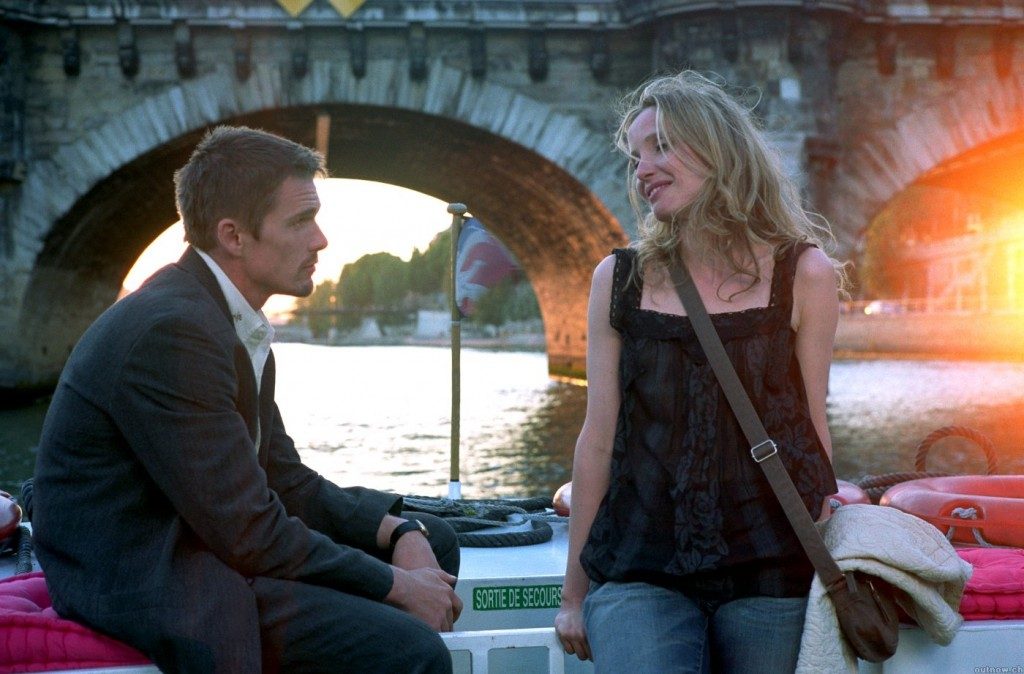
Remember the time when we all fell in love with Celine? The gorgeous French woman who gave life to the word “romance”. The woman who made us all long for a beautiful night in Vienna. In Richard Linklater’s iconic walk and talk romance trilogy, Julie Delpy dons the role of Celine; as a gorgeous, young, naive 23 year old in ‘Before Sunrise’, a confident, highly ambitious, strong yet so fragile and vulnerable woman in Sunset and a more matured, 40 something mother in Midnight. Much like Abbas Kiarostami, the simplicity in Linklater’s cinema can be magically deceptive. The Before trilogy explores womanhood with a level of astonishing simplicity and charm that no film could perhaps even think of coming close to. Celine’s transformation from her youth to her middle age is quite simply one of the most realistic and believable character transformations in cinema. The Before Trilogy is Richard Linklater’s love letter to the most beautiful creation on earth.
6. Three Colours: Blue (1993)
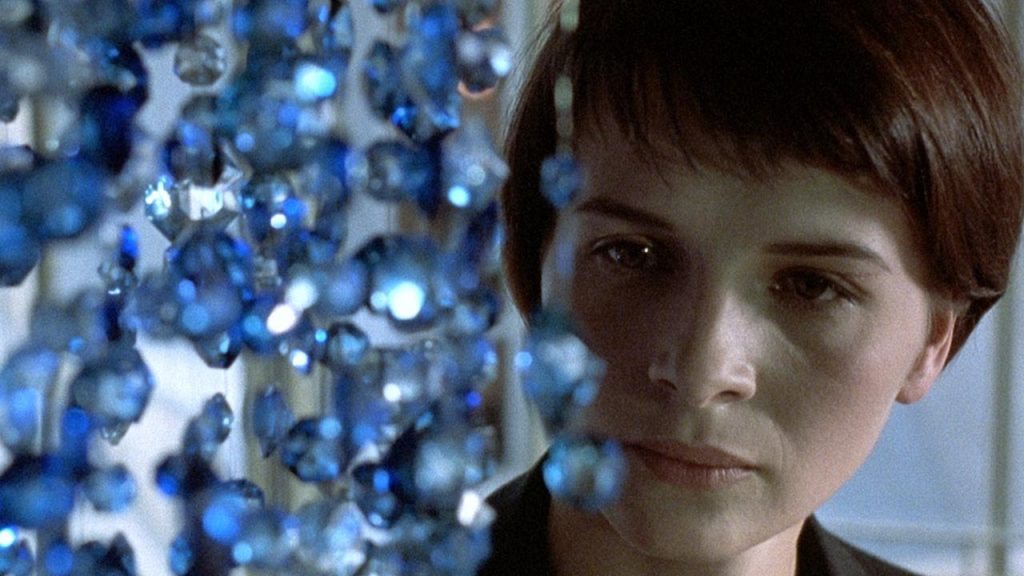
Like Ingmar Bergman, Krzyzstof Kieslowski understood women. But unlike the great Swedish auteur who was more into exploring the dark secrets of the female psyche, Kieslowski was more fascinated by the inner beauty of women. ‘Three Colours: Blue’ tells the story of a woman named Julie who lost her daughter and husband in a car accident. Post the incident, Julie abandons her life, isolates herself from the world around her and sets off on a long journey into her own self. Julie is someone who sacrificed an entire life; her youth, passion, desires and feelings. Death liberates her from the clutches of societal values and expectations as she savours the freedom of love. ‘Blue’ is an exquisitely crafted, intimate piece of cinema that paints the emotion that woman is.
5. Cries and Whispers (1972)
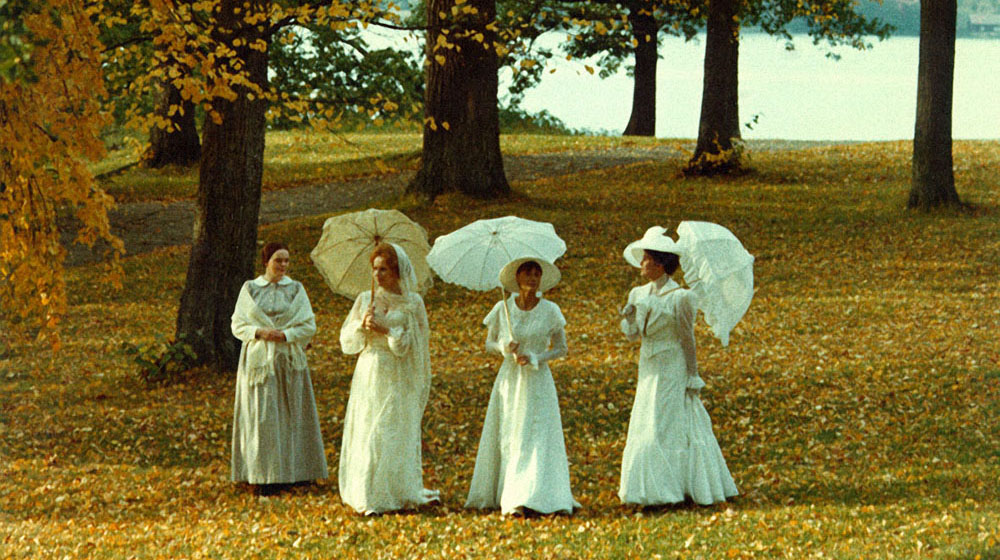
When I first saw Ingmar Bergman’s ‘Cries and Whispers’, I felt a very strange sense of uneasiness creeping on to me. It was a deeply disturbing experience for me and I wondered why because, clearly, this wasn’t a psychological horror film and didn’t have any kind of violence either. But it was this sense of discomfort and uneasiness at having seen someone penetrating into the human psyche and peeling off the darkest layers of secrets and desires veiled under the facades of mundane existence. Bergman uses colours to reflect upon the emotions felt by his characters as he lets us see them in all their vulnerabilities and darkest moments. But the kind of humanity and warmth he wraps his characters with, ensure that we end up empathising with them.
4. The Piano Teacher (2001)
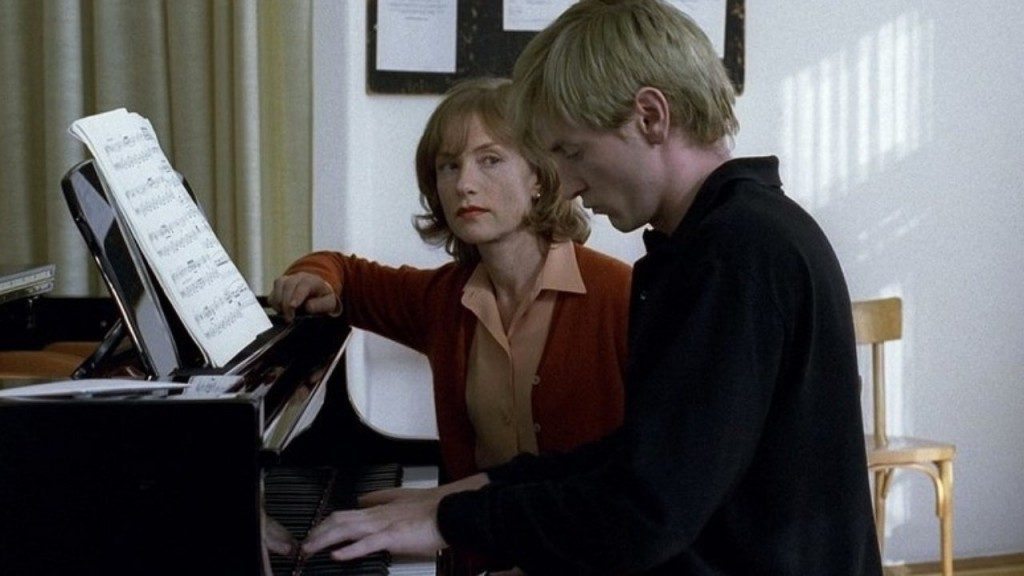
Intriguing, frightening, disturbing and heartbreaking. You know that a film which manages to evoke all these emotions is something really special. Michael Haneke’s ‘The Piano Teacher’ is one of the most fascinating female character studies of all time. Isabelle Huppert stars as Erika Kohut; an unmarried, middle-aged piano teacher with repressed sexuality and masochistic fantasies, emotionally isolated from the society and her dominating mother. She meets a young man named, Walter who is deeply infatuated with her. The two develop a strange sexual relationship which repels Walter as he discovers Erika’s fetish for violence. Erika Kohut is one of the most complex portrayals of women in cinema. On the surface, she comes off as a highly intimidating, ruthless personality wearing an austere demeanour. But deep inside, she is terribly frightened; frightened of herself, frightened to unveil her facade that masks her inner vulnerabilities, frightened that someday she would fall in love with someone and she knows it will eventually only lead to her own self-destruction.
3. The Double Life of Veronique (1991)
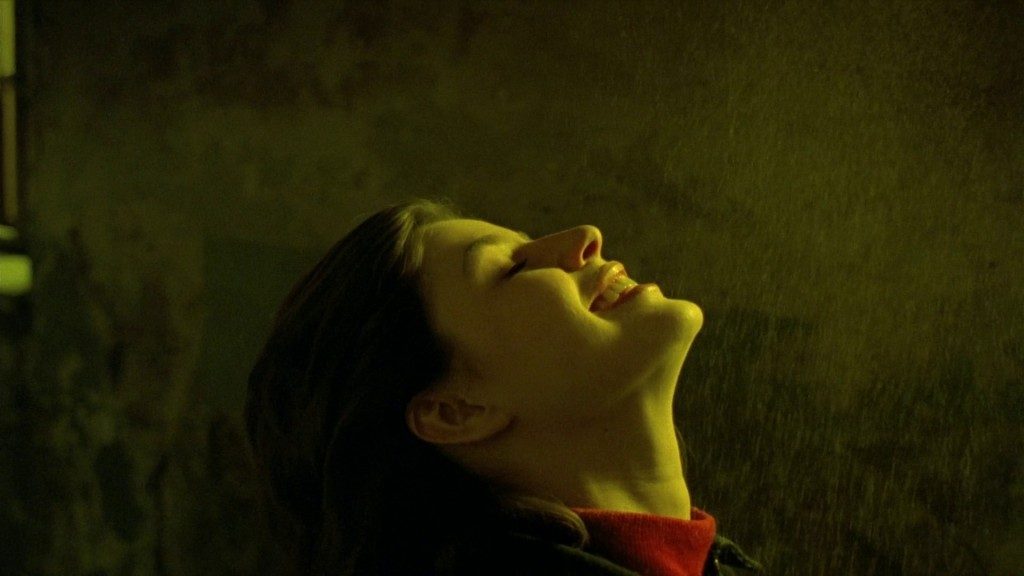
The master of melancholic cinema makes another entry on the list. ‘The Double Life of Veronique’ is visual poetry that celebrates what it feels like to be a woman. It tells the story of a Polish woman, Weronika, who begins to sense an emotional connection with someone she far beyond, someone she never really met. Her mysterious relationship with her French lookalike, Veronique, forms the emotional core of the film. Weronika dies during a concert and Veronique begins to feel an inexplicable sense of pain and grief. Kieslowski captures every single emotion that epitomises women; the melancholy, the sensuality, the hidden angst and the fleeting joy.
2. Mulholland Drive (2001)
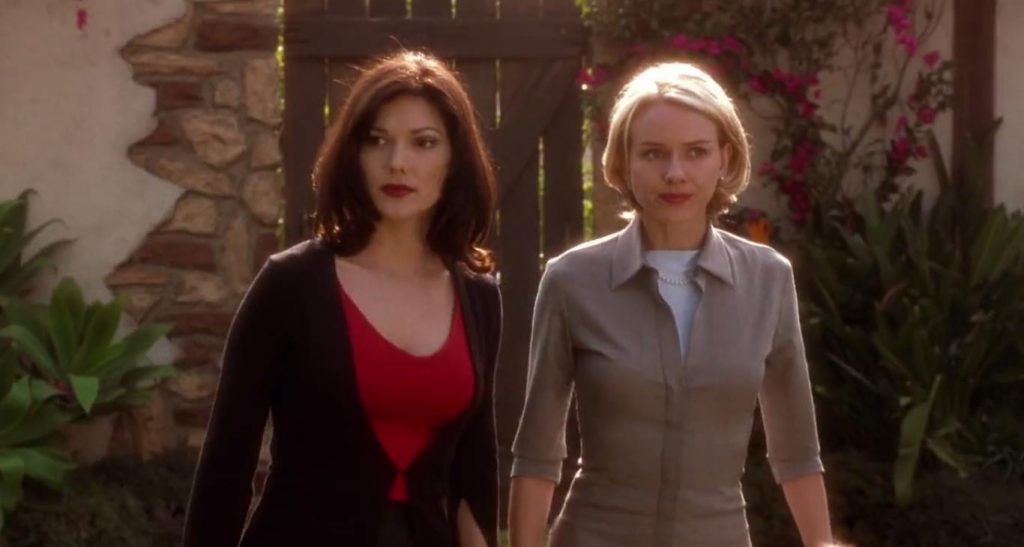
As you’d expect, this was a no-brainer. There isn’t anything quite like ‘Mulholland Drive’ and our unabashed love for this film would go on for eternity. ‘Mulholland Drive’ depicts two different love stories between two women; one that takes place in a dream and the other a nightmare. Reality is ambiguous and left open for our imagination and can be interpreted based on our understanding of life and the world around us. It’s an astonishing portrait of female desires and ambitions and manages to capture the frailties, the beauty, the power, the verve, the pain of women in a way perhaps no other film has or ever will.
1. Persona (1966)
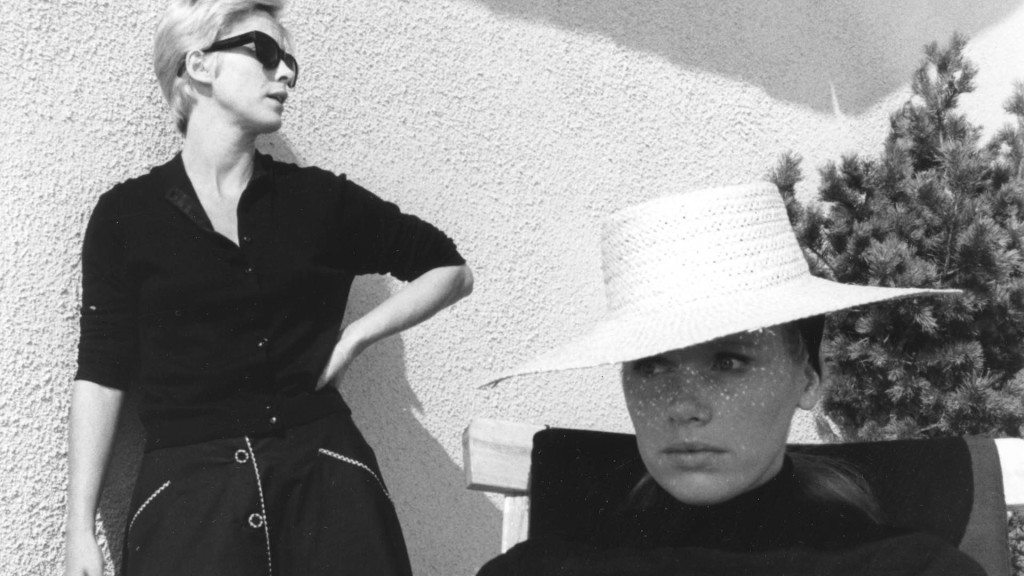
What is it like to be a mother? What is it like to make love to a man? What is it like to be a woman? Ingmar Bergman’s ‘Persona’ is quite simply the greatest film about women. Much like its spiritual successor, ‘Mulholland Drive’, ‘Persona’ explores the complex relationship between two women; a nurse and a speech-impaired stage actress. The nurse is given the responsibility of looking after the mute actress and they soon move to an isolated cottage where they develop a strange relationship with each other. Their personas seemingly get merged as the nurse opens up about her private life and shares intimate secrets with her. Bergman delves into the psyche of women and peels off the disturbing secrets and desires tangling inside them. It’s bizarre, frightening, sensual, exciting and one of the most profound cinematic experiences you’ll ever have.


You must be logged in to post a comment.